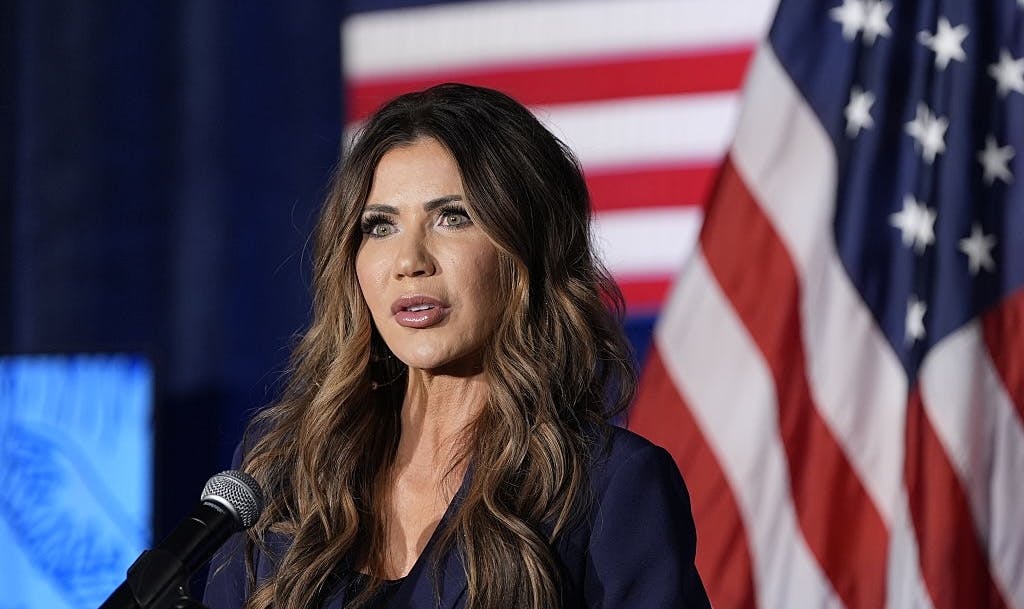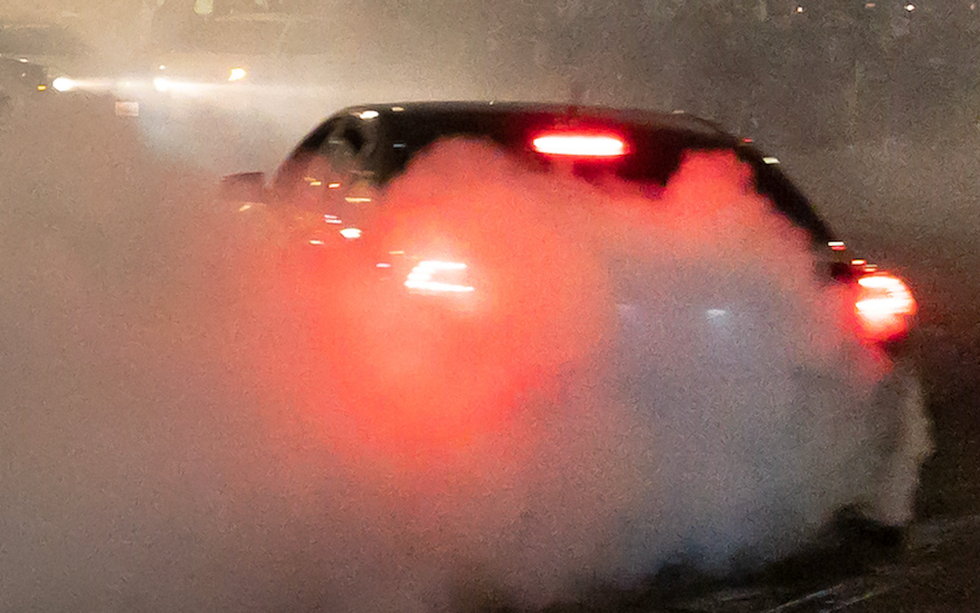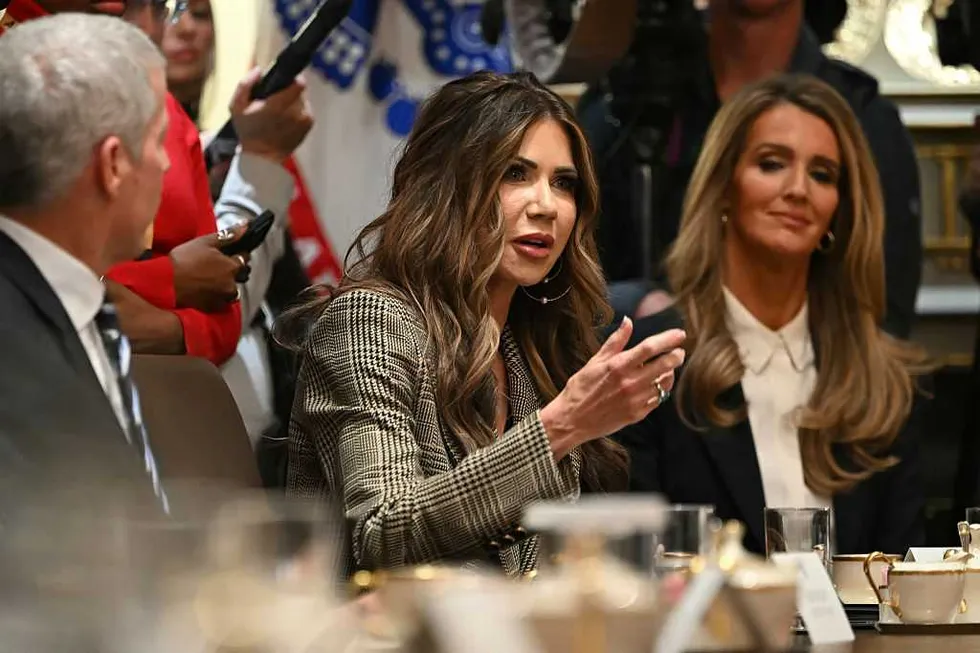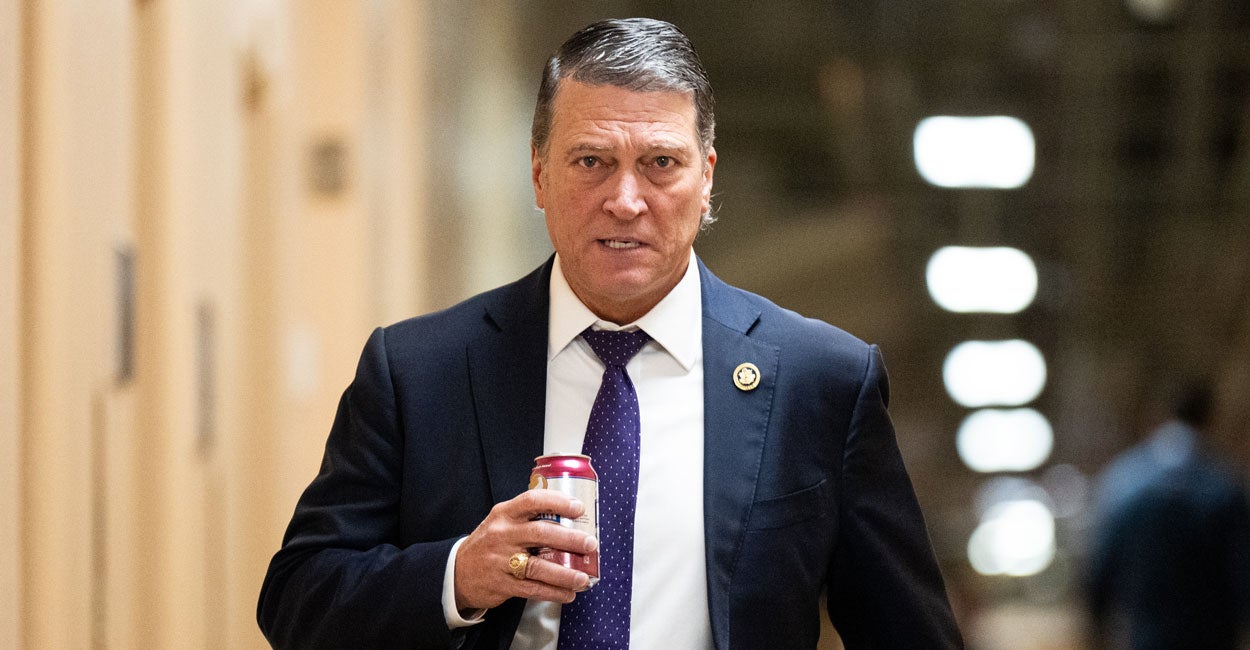Trump Reins in Bureaucrats’ Criminal Code
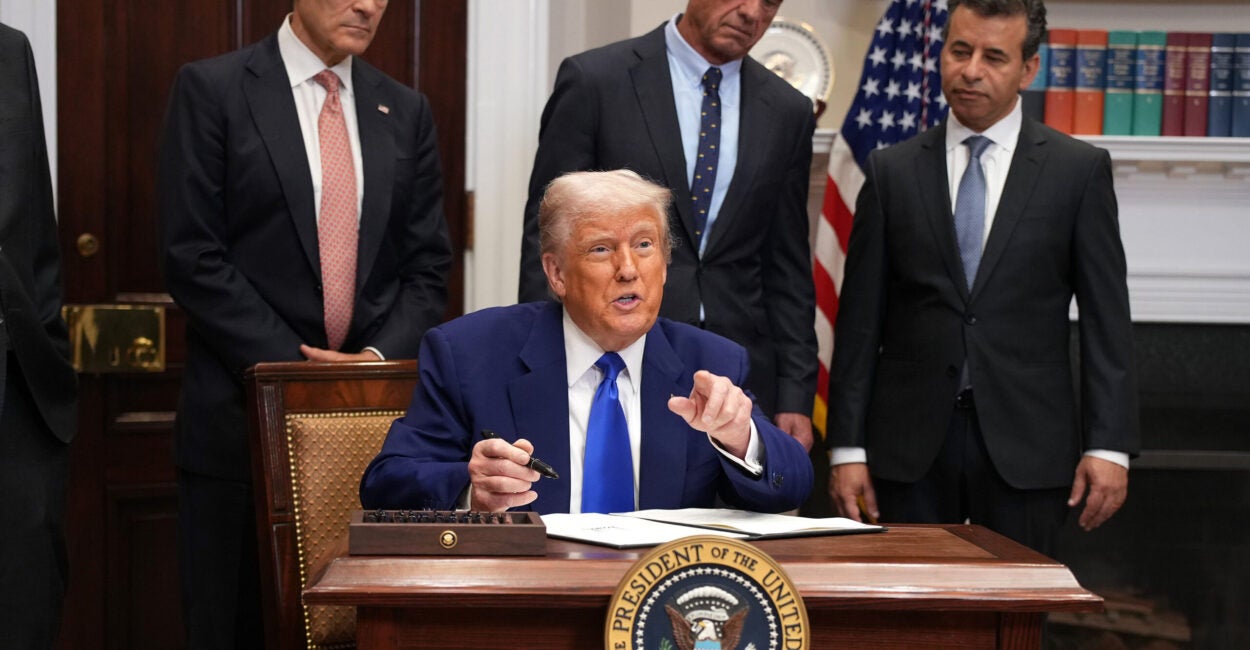
In 2020, boat crewmen John Moore and Tanner Mansell found what they thought was an illegal fishing line off the Florida coast. Believing it the work of poachers, they cut the line, freed several entangled sharks, and called the authorities. In response, the authorities charged and convicted them of felony theft of government property.
Moore and Mansell’s story is an instance of overcriminalization, the improper use of criminal law to accomplish political ends or address trivial societal issues.
Now, President Donald Trump has issued a much-needed executive order to try to rein in this abuse of the criminal law—one that will hopefully mean fewer people find themselves in Moore and Mansell’s position.
Indeed, their conviction is just one example of a pervasive problem. A study by The Heritage Foundation and the Mercatus Center recently estimated that the United States Code—the collection of all laws passed by Congress—contains 5,199 discrete crimes, and the Code of Federal Regulations—the body of law where federal agencies publish their millions of rules—contains hundreds of thousands more.
For example, it’s a crime to sell Swiss cheese without holes; to sell a marble across state lines unless it’s marked with the words “this toy is a marble”; or to submit a design to the Federal Duck Stamp contest that does not primarily feature “eligible waterfowl.”
Many of these crimes are created not by Congress but by federal agencies, which have embedded criminal penalties into hundreds of thousands of vague and obscure federal regulations. Consequently, as Representative Jim Jordan (R-OH) put it, “Americans can be charged with all kinds of crimes that they don’t even know exist, that they don’t even know they broke, that were created by people they didn’t elect.”
Worse, many of these crimes lack an intent element, meaning that a person can be guilty even if he didn’t know the law existed and had no intention of breaking it. If you sell Swiss cheese without holes, for example, you can go to prison—even if you don’t know that it’s a crime to sell Swiss cheese without holes and even if you don’t know that your cheese lacks holes.
It’s impossible to obey hundreds of thousands of criminal regulations that don’t follow common sense. Common sense doesn’t tell you that you could go to prison for making an “unreasonable gesture” to a federal park ranger’s horse—but under current rules, you can.
Recently, one of the authors testified before Congress urging it to limit these sorts of crimes. To our delight, the president issued an executive order doing just that shortly thereafter.
The order requires federal agencies to list and report all their criminally enforceable regulations and, where permitted by law, add an intent element to the definitions of regulatory crimes.
In his executive order, Trump calls the proliferation of criminal laws “absurd and unjust.” And it is.
Criminal law is meant to be obeyed—but nobody can obey hundreds of thousands of laws that punish things no reasonable person would think are crimes, like clogging toilets in national parks.
Trump places the obligation on federal agencies to identify and report regulations subject to criminal enforcement to “ease the regulatory burden on everyday Americans.” Furthermore, he “strongly discourage[s]” agencies from enforcing any regulations that they fail to report.
Trump’s order also aims to prevent the federal government from prosecuting people for crimes they don’t know they’ve committed.
To ensure that “no American is transformed into a criminal for violating a regulation they have no reason to know exists,” Trump directs regulatory agencies to “focus on matters where a putative defendant is alleged to have known his conduct was unlawful.” In addition, he encourages agencies to include intent requirements by default when drafting new regulations.
By requiring agencies to count crimes and include intent requirements in their regulations, Trump’s order combats two of the most significant contributors to overcriminalization. His order represents a major victory in a fight that has been going on for more than 40 years.
The Heritage Foundation has been working since the 1980s to restore the criminal code to its proper status and function. As former U.S. Attorney General Edwin Meese III described it, overcriminalization “create[s] traps for the innocent but unwary and threaten[s] to make criminals out of those who are doing their best to be respectable, law-abiding citizens.”
Trump’s executive order is an essential first step toward protecting those innocent and respectable citizens placed at the mercy of an opaque and unforgiving criminal code. But more permanent protection is needed.
Scholars, including one of the authors, recently urged Congress to cut the most absurd criminal regulations and to set a default intent requirement for crimes that lack one.
If Congress also joins the effort to defend Americans against the expansion, trivialization, and abuse of the criminal law code, none of us will ever have to worry that some bureaucrat will throw us in jail for something as absurd as traveling abroad with too much pocket change.
The post Trump Reins in Bureaucrats’ Criminal Code appeared first on The Daily Signal.
Originally Published at Daily Wire, Daily Signal, or The Blaze
What's Your Reaction?
 Like
0
Like
0
 Dislike
0
Dislike
0
 Love
0
Love
0
 Funny
0
Funny
0
 Angry
0
Angry
0
 Sad
0
Sad
0
 Wow
0
Wow
0



